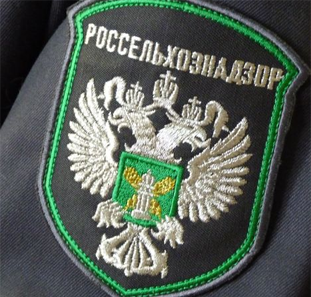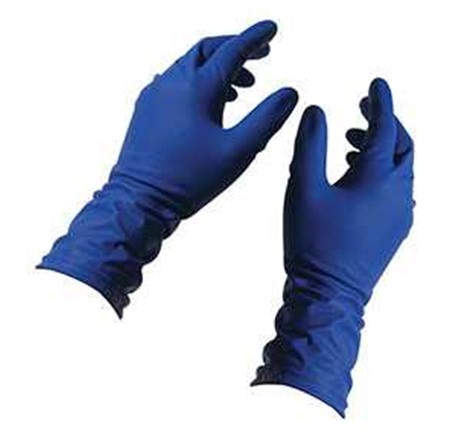Results 2023: Internal veterinary supervision, electronic certification, food safety

Based on the results of control and supervisory activities:
— 6,053 violations of legal requirements were identified;
— 2,427 protocols were drawn up;
— 2,685 decisions on bringing to administrative responsibility were issued;
— 1,317 orders were issued to eliminate violations of the law;
— the activities of 3 business entities were suspended;
— fines amounting to more than 36 million rubles were imposed;
— fines in excess of 25 million rubles were collected;
— 241 cases were transferred to the courts, prosecutors and investigative bodies.
As part of preventive work to prevent violations of legislative requirements in the field of veterinary medicine, 239,986 preventive measures were carried out (including 73,891 information, 87,912 consultations, 20,834 preventive visits and 57,349 warnings about the inadmissibility of violating legal requirements).
Electronic veterinary certification of products
In March 2023, work was launched on the analysis and development of analytical subsystems (analytical artificial intelligence modules) of the FSIS “VetIS” “Mercury” component and the use of these subsystems in the field of federal state veterinary control (supervision).
Between March 13 and December 20, 2023, 31,193 cases were identified that constituted violations of the law.
In total, in 2023, using the FSIS VetIS Mercury component, the following were identified:
— more than 2 thousand phantom enterprises, of which 618 are non-existent manufacturing enterprises and 1,648 companies engaged in trade and storage of products (as of December 26);
— over 42 thousand cases of introduction into circulation of potentially unsafe and/or low-quality products: controlled goods made from raw materials of unknown origin, products with an illegally extended shelf life, expired products, counterfeit goods.
For admitted cases of non-compliance with the requirements of veterinary legislation when registering eVSD, more than 5.5 thousand authorized persons of enterprises were blocked in the Mercury system.
Results of laboratory studies of animal products and feed
ROSSELKHOZNADZOR continues to record an annual decrease in the share of low-quality and unsafe products on the Russian market.
Thus, if in 2017, according to the results of laboratory studies conducted in the subordinate institutions of Rosselkhoznadzor throughout the country, the percentage of unsafe livestock products was estimated at 6.7%, then over the past period of 2023 this figure is 4.4%.
Over the past 7 years, by type of product, dairy and MEAT products , honey and beekeeping products, as well as feed and feed additives have become safer.
In 2017, the share of products that did not correspond to the quality composition declared by the manufacturer, including falsified ones, was 16.7%; for the partial year 2023, this figure is 11.2%.
A serious decrease in the share of low-quality products over 7 years occurred in the dairy and meat markets, as well as in the feed and feed additives market.
One of the key roles in improving the safety and quality of products sold in RUSSIA is played by a complex of information systems of Rosselkhoznadzor, which ensure traceability of production and movement of products and prevent the work of unscrupulous businesses.
Identification of laboratories illegally issuing test reports for products
According to the legislation of the Russian Federation, studies of biological material of animals and regulated products for the preparation of veterinary accompanying documents must be carried out in laboratories (testing centers) that are part of the system of state veterinary service bodies of the Russian Federation, or in other institutions accredited in the National Accreditation System.
However, in the course of monitoring the Mercury system, Rosselkhoznadzor establishes the fact that testing protocols for food products confirming their quality and safety are issued by laboratories that are not in the Register of accredited persons of the Federal Accreditation Agency. The institutions are not located at the declared actual addresses and do not carry out activities.
In 2023, the Service discovered 17 such organizations that are not accredited in the national accreditation system, as well as 8 physically non-existent phantom laboratories. Access to the Mercury system for authorized persons of enterprises that issued eVSD based on test reports from these institutions was limited.
Monitoring compliance with the requirements for the maintenance and use of animals for cultural and entertainment purposes
The territorial departments of Rosselkhoznadzor carried out 714 control and supervisory activities, including 81 inspections (67 scheduled inspections, 14 unscheduled inspections) and 600 control and supervisory activities without interaction with the controlled person.
Based on the results of control and supervisory activities:
— 108 violations of legal requirements were identified;
— 65 protocols were drawn up;
— 62 decisions on bringing to administrative responsibility were issued;
— 26 orders were issued to eliminate violations of the law;
— 23 cases were transferred to the courts, prosecutors and investigative bodies.
As part of preventive work to prevent violations of legal requirements in the field of treatment of animals in terms of compliance with the requirements for keeping and using animals for cultural and entertainment purposes, 8,030 preventive measures were carried out (including 5,183 information, 2,009 consultations, 387 preventive visits and 451 warning about the inadmissibility of violating legal requirements).
Activities in the field of circulation of medicines for veterinary use
As part of this control, the Service carried out 94 control and supervisory activities, mainly under the Program for Quality Inspections of Medicines for Veterinary Use (84 activities). 5 inspection visits and 5 unscheduled inspections were carried out based on risk indicators.
Based on the results of control and supervisory activities:
— 4 administrative offenses were identified;
— 4 orders were issued;
— 7 resolutions were issued on bringing to administrative responsibility (of which 3 were based on the results of control and supervisory activities in 2022);
— fines totaling 6 thousand rubles were imposed and collected.
Under the conditions of the moratorium on inspections, the main emphasis was placed on preventive work to prevent violations of legal requirements in the field of circulation of medicines for veterinary use. 48,633 preventive measures were carried out (including 42,901 information, 3,925 consultations, 1,320 preventive visits, 487 warnings were issued regarding the inadmissibility of violating legal requirements).
By decision of the Service, Roskomnadzor blocked more than 4,500 sites on the Internet containing offers for the retail sale of medicines by persons who do not have a license to carry out pharmaceutical activities (more than 3,000), as well as offers for the sale of counterfeit, falsified or in violation of labeling requirements (more than 1600).
An examination of 761 samples of medicines of 730 names, 760 series was carried out. Of these, 473 samples of 448 items were taken at checkpoints across the border of the Russian Federation. As a result, the sale of 59 series of medicinal products for veterinary use was suspended, 5 types of medicinal products were transferred to batch-by-batch quality control.
Permitting activities in the field of circulation of medicines for veterinary use
In 2023, the Service granted 481 licenses to carry out pharmaceutical activities. The service is provided through the EPGU portal, the terms for providing the service are reduced by 3 times, the number of requested documents is up to 1.
Regionalization and compartmentalization
Regionalization in the Russian Federation has been carried out for more than 140 animal diseases: cattle and small ruminants, deer, pigs, horses, birds, dogs, cats, fur-bearing animals, bees, amphibians, fish and other hydrobionts.
The decision of Rosselkhoznadzor on regionalization is 14,511 pages (9 volumes of books). In 2023, 62 changes were made to it.
This entire volume of information is processed by the Cerberus system and transmits the information to the Mercury system. Therefore, when preparing veterinary accompanying documents in electronic form, the FSIS component “VetIS” - “Mercury” - itself selects the conditions of movement necessary for the transportation of specific regulated goods, taking into account the current statuses of contagious animal diseases in the regions of departure and receipt.
In the module of the Cerberus system - “Conditions of transportation” - you can check in advance, before issuing an eVSD, the conditions provided for by regionalization for the movement of certain regulated goods or animals.
Regionalization is used in conjunction with compartmentalization. The conditions for the movement of pigs and pig products depend on the level of compartment (level of biological protection) of the farm of origin of the animals or the product manufacturer.
Participation in the development of regulatory documentation
With the participation of Rosselkhoznadzor, the following were approved in 2023:
— Rules for the registration of animals and the list of animal species subject to individual or group marking and registration, cases of individual or group marking and registration of animals, as well as the timing of the registration of animals" (Resolution of the Government of the Russian Federation dated 04/05/2023 No. 550),
— Veterinary rules for labeling and recording animals (Order of the Ministry of Agriculture of Russia dated November 3, 2023 No. 832),
— Veterinary rules for determining the zoosanitary status of objects - land plots, buildings, premises, structures, structures, with the use of which individuals and legal entities carry out activities for the cultivation, maintenance and slaughter of pigs, for the production, processing and storage of pig products" (order of the Ministry of Agriculture of Russia dated 05/11/2023 N№ 482),
— veterinary rules for the fight against leptospirosis (order of the Ministry of Agriculture of Russia dated November 10, 2023 No. 847),
— veterinary rules for keeping rabbits for the purpose of breeding, raising, and selling them (Order of the Ministry of Agriculture of Russia dated September 29, 2023 No. 777).
Read together with it:
- От самолетов до лекарств из плазмы крови. Пархомчик об амбициозных проектах Брестской областиПетр Пархомчик Председатель Брестского облисполкома Брестская область, продвигая себя под брендом "#1регион", стремится к лидерству во многих сферах. Производство уникальных лекарств, сборка самолетов и речных судов - лишь некоторые амбициозные проекты, над которыми уже работают брестчане. Председатель Брестского облисполкома Петр Пархомчик в интервью корреспонденту БЕЛТА рассказал о развитии экон...
- Казахстан расширяет экспортные возможности в сфере животноводстваЕвропейский Союз открыл рынок для пчеловодческой продукции. Экспорт говядины за первые десять месяцев 2025 года увеличился в 1,7 раза, достигнув 30,2 тыс. тонн, в то время как поставки баранины выросли на 1,9 раза — до 25,5 тыс. тонн. Такой рост объясняется высоким спросом на казахстанское мясо со стороны зарубежных партнеров. Работа по расширению ассортимента экспортируемой продукции продолжается...
- Plant growers in the Chelyabinsk region have increased productionThe results of the crop production sector in 2025 and the objectives for the coming year were discussed at an extended meeting of the Board and Public Council of the Ministry of Agriculture of the Chelyabinsk Region. Heads of rural municipal districts of the Chelyabinsk Region participated in the meeting via videoconference. Opening the meeting, Deputy Governor of the Chelyabinsk Region and Minist...
- In memory of Leonid Andrianovich Kotov, an outstanding Ural breederLeonid Andrianovich Kotov, a prominent Ural scientist and plant breeder, has passed away at the age of 96. His name is forever associated with the development of horticulture in the harsh conditions of the Middle Urals and his work created gardens that have become a part of the lives of thousands of Ural families. The staff of the Ural Federal Agrarian Research Center of the Ural Branch of the Rus...
- Нарушения безопасности: опасные бактерии в продукции тамбовских птицефабрикЭто не первый случай нарушения, поэтому экспорт продукции этой фабрики временно ограничен. Аналогичные проблемы выявлены и у «Тамбовской индейки», чье мясо проверяли в Белоруссии. На предприятие введен усиленный лабораторный контроль, и в случае повторных нарушений может быть рассмотрен вопрос о полном прекращении экспорта. Информация о нарушениях уже направлена в Роспотребнадзор для дальнейшего р...
- Госстандарт: продукция с Госзнаком качества - это имидж страны, она должна быть высочайшего уровняЕлена Моргунова. Фото Госстандарта 24 декабря, Минск. Продукция с Государственным знаком качества должна быть высочайшего уровня и отождествляться с Беларусью. Об этом заявила корреспонденту БЕЛТА председатель Государственного комитета по стандартизации, заместитель председателя Республиканской аттестационной комиссии Елена Моргунова, комментируя итоги присвоения продукции Госзнака качества в 2......
- Чили приветствует расширение Соединенными Штатами списка разрешенных сырых продуктов из говядиныВ настоящее время Чили экспортирует говяжьи отрубы в Соединенные Штаты, и теперь разрешение распространяется и на обрезки мяса, которые используются в основном в переработанных продуктах, таких как гамбургеры. Решение Министерства сельского хозяйства США включает эти новые отрубы, расширяя предложение как для потребителей, так и для пищевой промышленности США. Это обновление отражает уверенность М...






























































